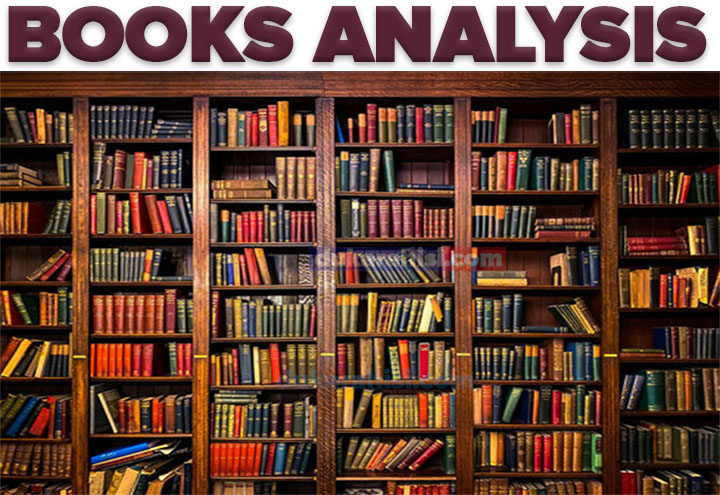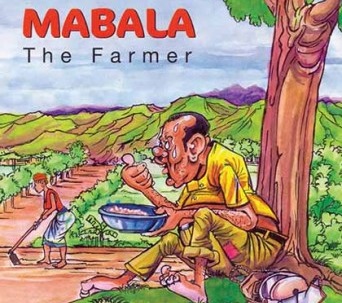Importance Of Poetry
Poetry | Types Of Poetry | Importance Of Poetry | Significant of Literature | Literature | Literature and Language | FEATURES OF GOOD POETRY | TYPES OF POETRY | HOW TO INTERPRET A POEM |
Poetry is a form of literature that uses aesthetic and rhythmic qualities of language to evoke meaning in portraying the human social realities.
On the other hand, Poetry is the type of literature which uses beautiful, creative and imaginary language in portraying human daily social realities.
Poetry uses forms and conventions to suggest differential interpretation to words or to evoke emotive response.
In poetry the devices such as assonance, alliteration, onomatopoeia and rhythm are sometimes used to achieve musical or incantatory effects.
Also, in poetry the use of ambiguity, symbolism, irony and other stylistic elements of poetic diction often leaves a poem open to multiple interpretations.
FEATURES OF GOOD POETRY
i) It is rich in figures of speech.
ii) It evokes emotions.
iii) It is made of verses and stanza.
iv) It is made in rhymes and rhythms.
v) It meant to be sung.
vi) It gives moral lessons.
TYPES OF POETRY
Poems can be categorizes basing on their forms and content. Basing on forms, one can divide them into traditional or closed poetry and modern or open poetry.
With traditional poetry refers to those poems which adhere strictly to the traditional rules of composing poems like rhyming schemes, rhythmic patterns, and equal number of syllables, verses and stanza.
Coming to modern poetry refers to poems which ignores the structural patterns of composing poems. These poems are also called the free verse poems.
Under content the division of poetry bases on what the particular poem addresses to the audience.
Some of such categories are:-
a) Narrative poetry– This is a genre of poetry that tells a story.
b) Descriptive poetry– This is the type of poetry which tells on what someone or something is like.
c) Lyric poetry– These ore poems which expresses personal deep thoughts and feelings.
d) Elegy poetry– An elegy is a mournful, melancholy or plaintive poem, especially a lament for the dead or a funeral song.
-These are sad and sorrowful poems which are sung mainly for remembering someone who has dead.
e) Sonnet poetry– This is the type of poetry which is made of fourteen lines with a particular pattern of rhyme.
f) Ode poetry– These are poems which express the writer’s thoughts and feelings about a person or a certain subject.
-It is a long lyric poem that is serious in subject and treatment, elevated in style, and elaborative in its stanza structure.
g) Ballad poetry– This is the type of poetry in which the poems tells a story with deep feelings.
h) Epic poetry– These are long poems which deal with a historical subject.
-It is a long verse narrative on a serious subject, told in a formal and elevated style, and centered on a heroic or quasi-divine figure on whose actions depends the fate of a tribe, a nation, or the human race.
i) Dramatic poetry– This is a kind of drama which is written in verse to be spoken or sung.
IMPORTANT TERMS USED IN THE STUDY OF POETRY
-In the study of poetry one may meet with different terms as discussed bellow:-
i) Poetry– This is the art of composing or collecting poems.
ii) Poem– This is a piece of writing in verse and stanza form which express deep feelings in a beautiful language.
iii) A verse– This is a single line in a poem. This line forms a stanza or a part of stanza.
iv) Stanza– This is the combination or collection of verses. Stanza can also form a poem or be a part of a poem.
v) Poet– This is a man who compose poems.
vi) Poetess– This is a woman who compose poems.
vii) Persona– This is a person who speak in the poem. Sometimes persona is called dramatist.
viii) Rhyme– These are similar sounds which appears at the terminal points either across or at the end of each line of the poem.
ix) Rhythm– These are regular movements of beats occurring in the poem as the result of the rising and falling of sounds.
x) Refrain– This is the repeated line which appears at the end of each stanza in the poem.
xi) Tone– This refers to the quality of voice which is used in the poem depending on the message to be conveyed before the audience.
xii) Mood– This refers to the state of mind of a reader which comes after reading a poem.
xiii) Title– This refers to the name of the poem. Some poems take ironical names from which the reader can identify the meaning of such poems.
xiv) Theme– This refers to the central idea which is conveyed in the poem.
xv) Message– This refers to the lesson that one build after reading a poem.
xvi) Poetic license– This refers to the freedom that poets and poetess has in violating some facts and grammatical rules when composing poems.
xvii) Imagery– This is the figure of speech which creates mental pictures through words. Poems are rich in this figure of speech as it appeals through senses like touch, seeing, smell, taste, sound as well as kinesthetic.
xviii) Symbolism– This is a figure of speech which use objects in presenting ideas.
xix) Poetic diction– This refers to the way words are chosen and arranged esthetically in poems to portray human reality.
Importance Of Poetry

HOW TO INTERPRET A POEM
In order to analyze any poem well one should adhere to the following procedures:-
a) Look and observe at the poem careful- This helps in identifying the number of verses and stanza that forms it. Also, through this one can understand whether the poem is traditional or modern.
b) Read the whole poem careful.
c) Re-read the poem carefully while identifying the difficulty words used in it.
d) Find the meaning of difficulty words used in the poem.
e) Re-read the poem carefully relating the meaning of difficulty words to the context of the poem.
f) Ask yourself on what the poem is all about?
g) Identify the themes portrayed in the poem.
h) Comment on the mood of the speaker.
i) Identify the messages found in the poem.
j) Comment on the poetic diction employed in the poem.
k) Relate the poem read to you personal and national life experience.
RELATIONSHIP PRESENT BETWEEN ORAL AND WRITTEN LITERATURE
a) Both portray on human social realities
b) Both use language as its medium of communication
c) Both consists of two elements that is form and content
d) They perform similar functions like educating, developing language and uniting people.
DIFFERENCE PRESENT BETWEEN ORAL AND WRITTEN LITERATURE
ORAL LITERATURE. |
WRITTEN LITERATURE |
| ü It is presented orally. | ü It is presented through writings. |
| ü It is preserved in memory. | ü It is preserved in writings like novels and plays. |
| ü It involves performance. | ü No performance rather reading. |
| ü It adopt immediate changes | ü Does not adhere to immediate changes rather improving the coming edition. |
| ü It is rich in types. | ü It has few types. |
| ü It is rich in characters. | ü It is limited to human characters. |
| ü It is owned by the whole community. | ü It is owned by the author. |
| ü It is old in age. | ü It is young in age. |
| ü The performer and audience come together during the presentation. | ü The writer and the reader stay separable. |
| ü It develops the speaking and listening skills. | ü It develops the writing and reading skills. |
ADVANTAGES OF STUDYING LITERATURE
i) It identify the society.
ii) It broadens people’s thinking
iii) It preserves and transmits people’s culture
iv) It educate people
v) It criticize people
vi) It influence people
vii) It develop language
viii) It entertain people
ix) It unite people
x) It encourage people
xi) It create employment to people






























































wow, awesome blog article.Thanks Again.
Hello, I do believe your site may be having internet browser compatibility issues. Whenever I take a look at your blog in Safari, it looks fine but when opening in Internet Explorer, it’s got some overlapping issues. I merely wanted to provide you with a quick heads up! Besides that, great website!